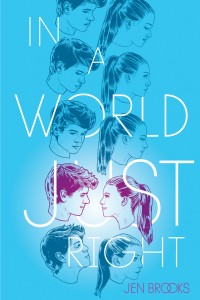“Up” ending or “down” ending?
Sometimes predicting an ending isn’t hard. When you’re reading a book (or watching a movie) within a certain genre, for example, you know the romantic male lead and romantic female lead will get together, or that the evil sorcerer will be defeated by the reluctant hero, or that the detective will solve the murder case. What you often don’t know is how that ending will come about. One oft-quoted piece of advice I received in graduate school is “Give the audience what they want, but not in the way they expect.”
There is a difference between knowing that the hero of a story will triumph and knowing how that triumph will come about. There is usually a crisis moment close to the end when the outcome is supposedly in doubteven though you know things will eventually be okay (or not okay, though “up” endings are way more common than “down” endings). I LOVE, LOVE, LOVE when a book can deliver an “up” ending or a “down” ending that I know is coming, but in a way that truly surprises me, and that doesn’t happen very often.
However, I VERY RARELY near the end of a story truly not knowing whether the ending will be “up” or “down.” Last night I finished reading another book from one my agent’s clients. (The Wet Nurse’s Tale by Erica Eisdorfer, and there are some plot-point spoilers below, though I’ve tried to be vague enough not to really spoil anything) The main character mentions somewhat early on that she might have just given up at the start if she’d known the horror of what the future would bring. This is pretty obvious foreshadowing, but left me wondering if she meant the horror leading up to an eventual “up” ending or the horror of a “down” ending. At stake was the life of a child.
As the pages turned and fewer and fewer chapters remained, the story turned quite dark, as stories often do when they approach the climax. All kinds of clues got dropped that the antagonist in the house would bring about the death of the child. There were precedents. There was an “accident” and a disastrous outing. There was violence done to another character. The main character speculated on how the antagonist would kill the child. The main character devised a plan to save the child in which the child would be alone with the antagonist for a short time. On top of it all, the main character several times stated how beautiful the child was and how happy the child made her (and I think we all know a super-loved/needed character often dies at the moment they are loved/needed the most). At the same time, though, the tone of the book and the voice of the main character indicated that things would turn out okay. Although I suspected tone and voice would win out, I really wasn’t certain. I mean REALLY wasn’t certain. I can’t remember a book I’ve read where the outcome was that much in doubt for me, and I worried. Ever since my son was born I’ve had a really hard time reading about the death of a child. I didn’t want the ending to turn out badly. Then I wouldn’t be able to sleep for days and days.
Well, I’m tired today. But, dear Reader, I’ll leave you guessing whether it’s because of the book’s ending or because of the recent change to daylight savings time . . .
Disclosure: I am in the process of reading books by other authors onmy agent’sclient list. This is how I came to readThe Wet Nurse’s Tale. To be clear, I have not been asked to promote, nor is it my purpose to promote this book other than to say I found in it a great example of an important writing principle. :)


Great post, Jen!
I admit that I hate a down ending when I’m reading. I’ll avoid books that are rumored to have a down ending, or that look like they’ll end badly from the cover copy. I don’t want to invest that much emotion and caring into something that’s going to bring me down. I might be alone in that one, but that’s why I like epic fantasy where good triumphs over evil, and romances where love conquers all.
However, I am a little torn in my writing. I definitely get the urge to write downer endings sometimes. I can see why authors do it. I get this vague, “and then everybody dies!” urge sometimes. It’s easier for me to experience my own downer ideas than to have someone else bring me down. Maybe it’s because I always know when it’s coming?
That said, I’ve so far managed to convince myself not to kill everyone at the end of one of my novels ;-)
-Rhonda
I think as I get older I like down endings less and less. I do still, however, enjoy a good “ironic” ending (I think that’s what Robert McKee calls it, but I don’t have time to get out the book this moment) when a character both gains something and loses something –a bittersweet ending, if you will. I think about those kinds of endings for long after I’m done reading a book or watching a movie.
I’m glad you haven’t killed all your characters, since I’m rather attached to them. :)